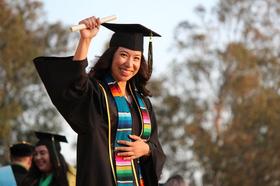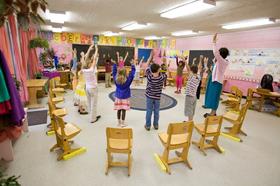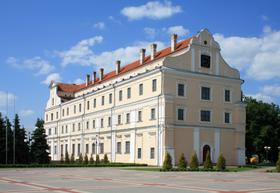What Do They Teach?
This article is a companion article to How Do They Teach?, which discusses what goes on in private school classrooms. This article explores the academics and other material that schools teach.
When we parents start thinking about sending our children to private schools, one of the first questions that comes to mind is the teaching content. What exactly will the schools you are looking at teach? Obviously, with thousands of private schools, I cannot address all the permutations and variations. So, I thought it might make sense to look at several educational approaches and methods and see what they teach. That will at least give you a starting point for some in-depth exploration of what they teach at schools you might be interested in.
Toddler
The wee ones won't be at school for very long daily. Apart from that, the teachers will create a rich environment to peak a child's interests. The development of fine and gross motor skills, as well as language and speech skills, are a focus.
Prekindergarten
Most prekindergarten programs focus on preparing their students for kindergarten. Look for the development of motor skills and teach children how to socialize. Also, look for play-based lessons with an emphasis on collaboration, teamwork, and listening. Building on the excitement of discovery is another component in the prekindergarten teacher's portfolio of skills. Children learn by doing. Your child should have lots to do balanced, of course, with snacks and quiet times.
Here is how one teacher approaches teaching her preschool class.
Most preschools seem to adopt many of the elements found in Montessori education. Maria Montessori advocated following the child. So, providing classrooms scaled to small people as well as plenty of objects and activities with which to pique those infant curiosities is very common, no matter what approach you encounter in preschool. Many schools take a cafeteria approach to methodology. By that, I mean that they make various elements from Montessori, Reggio Emila, and Waldorf their own. Honestly, you would have to observe a class or two and ask questions to see if this approach works for you and your child.
Remember that so much depends on the teachers and how they teach. The one red flag I would recommend looking for is an overly doctrinaire or rigid approach to anything in the classroom, except the children's safety, of course. I had a grandson who was miserable in his preschool for precisely that reason: the rigid, inflexible teacher who did not follow the child. We have all had a difficult teacher in the upper grades. But in preschool? That's unacceptable. You know your child. Make certain that the preschool that you are considering offers teaching that matches your needs and your child's requirements.
Kindergarten through Grade 6
Expect to find the foundations of the core subjects being laid in kindergarten. Language arts, mathematics, science, and social studies are the academic containers, if you will, that teachers begin to delve into with kindergarten students. The approaches and content will vary from school to school. So keep that in mind as you explore your options.
Here is a look at what goes on in a Waldorf class.
Many schools offer foreign languages, music, and art as the core subjects. Waldorf schools add movement or eurythmy as well. Waldorf teachers stay with their students for several grades. That provides a special continuity, a cherished feature of a Waldorf education.
Another element you will come across is the use of Common Core Curriculum standards in some private lower schools. The thinking seems to be that those standards are being incorporated into college admission testing and accreditation standards. Don't hesitate to ask questions about Common Core. If what you see and hear does not meet your requirements and your child's needs, look elsewhere.
If you are looking at religious schools, remember that they will devote a portion of their teaching day to religious studies. How much time is allocated and how intense those studies are depends on the individual school. Religious schools come in a variety of strengths, as it were, from light to full strength. You should be able to find a school that suits your purposes in any religion you care to think of.
Classical Christian schools offer a curriculum based on the Trivium, which is a classical approach to education. Grammar, logic, and rhetoric are components of that method.
Progressive schools do not teach to a test. They take the view that children need to explore subjects rather than merely consume facts. Critical thinking skills and project-based learning are part of this approach.
Once again, as with preschool and early childhood education, you will find a variety of approaches and methods in kindergarten through sixth grade. Keep an open mind as you explore the options in your area. You may just discover that an approach or teaching method that you were skeptical about is indeed the right one for your child. The elementary grades lay the foundation for the college preparatory years, so ensure you get it right. Ask lots of questions. Move on when you do not get the answers that you are looking for.
Middle School
In most private day schools, the middle school grades 5 through 9 or variations on that span are designed to gradually ramp up the academic intensity so that your child is ready for the rigors of high school courses. These are the years where you have to think carefully about making sure that your child has the enrichment she needs. Enrichment applies equally to academics, athletics, and extracurricular activities. Most private schools seek to develop the whole child so that she has a well-rounded approach to life as an adult.
The teamwork and collaborative approaches that we saw in the early childhood settings expanded into full-blown discussions and analyses of events, theories, and so on. Critical thinking and time management skills are an integral part of the mix at this stage.
Take time to observe how middle school teachers teach. Children are rather fragile in early adolescence. It takes an experienced, gifted teacher to handle all those hormones with sensitivity and aplomb.
High School
Are you looking for college prep? Something else? Most private high schools are proficient at preparing their students for college. But honestly, that may not be the best route for your child to follow. Now is the time to sit down and examine where she has been and where she proposes to go. They show her how to get there. Next, she needs to find a private school that will handle the academics, sports, and other activities she needs to help her reach her goal.
This video gives you an idea of the action-packed day students in a private high school typically have.
Private high schools come in a wide range of approaches and methods. But the fork in the road is about deciding whether she should go away to boarding school or stay home and attend a day school. Be prepared for the inevitable course corrections as she matures through high school. Let her spread her wings and get comfortable with being her person. I mention all these parenting basics because they are the backdrop against which you must select the private high school she will attend.
I suspect that by now, you have realized that any private school can only do so much. You, in truth, are the master teacher guiding your child's education. The school will do much to help you realize that vision that you have for your child. In the end, it is in your hands.
Questions? Contact us on Facebook or Instagram. @privateschoolreview
#Curriculum #TeachingMethods #PrivateSchoolEducation












